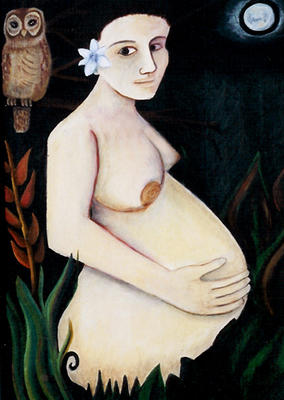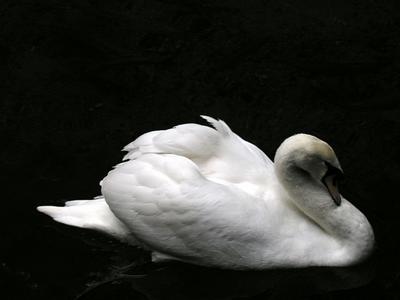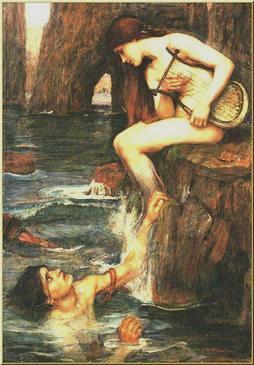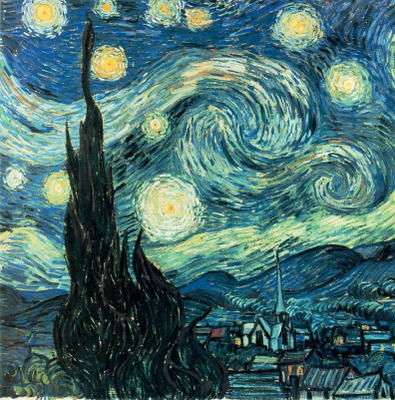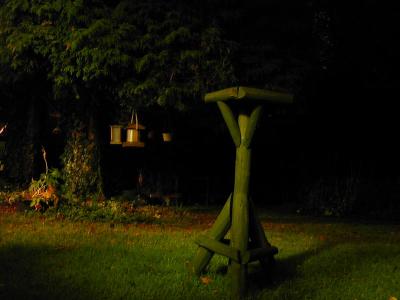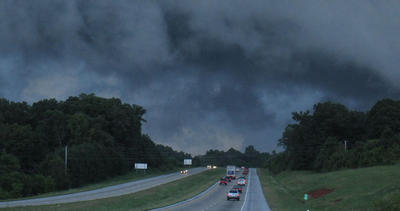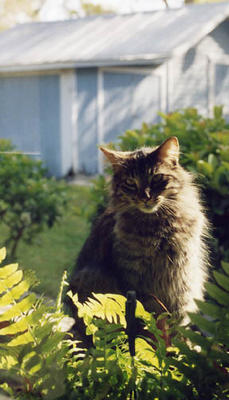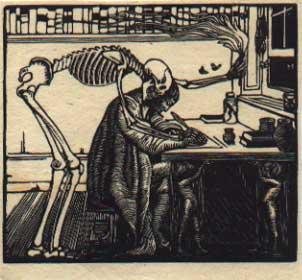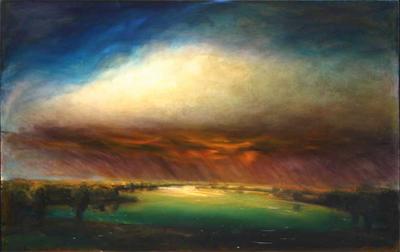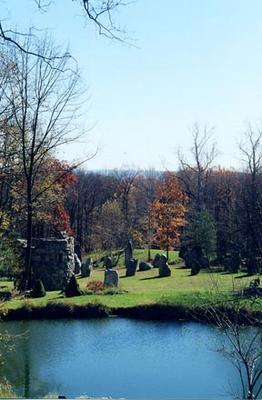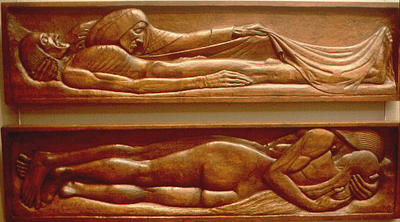So What

THIS MEANS WAR
I'll never move to new
enough ground hanging
on her sweet blue paps.
Feed me milk to sleep
but wake me fresh with
a slap of GI Joe. Not salt
havens in the wave but
a torc of fire hammered
round my heart, the Cerne
Giant shadowing my stance.
Not by providence of hour
but victory of tongue
does he crest and clear
the annihilating wave.
Wake up asshole, it's time
to move on out.
Better be alert 'cause
your next poem may be
your last, its gauzy reach
so surf-softened you
may not hear the springing
blade before it fangs your
throat. Wise up, feather-man.
Sulphur is a grunt's best
friend when the fife and drum
strolls by. This ain't no
rock 'n' roll show, no
versey horsey undertow.
If you would live the day,
understand the suburb
stops here. Inside every thong-
thralled Thoth's a rout-loud Thor.
Forestall your meters no more,
asshole, 'cause This Means War.
***
Juxtopose these dark dreamy wombtombed conceivings slowly coming to fruit in the night's deepest garden to frag days in overbright Iraq. Twenty-five US Marines have been killed this week fighting insurgents in Anabar Provence, the far-western seam through which a torrent of Saudis bent on jihad are pouring. Whose God is hotter in the clash of bomb and steel, flesh and flesh? All of that young-man's testosterone amped by desert heat and personal artillery, steroids and rank body odors, the river stench of death more powerful than the Euphrates. We're stuck there in rhetoric of a fundamentalist Administration in love with pre-modern Puritanism and oil, Teddy Roosevelt with his big stick of a horsecock sprouting from the pug of an Abrams M1 tank and all of that highflying technology which has never convinced the locals of a superior ideology.
Reveries of war -- is that oxymoronic? Does the enflamed heart leap to action, leaving behind the contemplative, mother-hugging, slow-gestating, dark revolvings of the morning muse? Action is a slap of vigorish, a balm for the sedated suburbanites, pussy's alternate goad, Ares and Aphrodite linked in the twin turbines which race bellbent into the meaningless red fray in which men are made and broken and rewarded with miserable pensions and the life-long arbitration of shattered wings. Well, if poverty (read a penury of Pluto's depths) drive young men (and women) to war, that booze will drive 'em back here eventually.
Not to dis the effort, the sacrifice. We send 'em off to fight a war we wholly ignore at home. Little yellow ribbon decals on the bumpers of gas-guzzling sport utility vehicles (in an age of high gas prices due to tight supplies from the Iraq war) are the supremest ikon of our complicity and ignorance and awful hubris, every sulphuric toxin jissomed from the ball of angry Mars. It ain't no rock n roll show.

HOUNDS OF THE
DEMOCRATIC IDEAL
After the victorious
engagement of
invincible ordnance
the bloat.
Who dwells on
those swollen
body parts blooming
southeast of Baghdad
with the sweet-sour
fume of death?
Not I. Instead
the camera pans
beyond into the city,
the final objective,
tank shells fired
at the Palestine
Hotel where the
snipers crosshair
American might.
The fear transmuted
into something worse,
a bloodlust soaring
to brink the sky.
An Abrams tank,
steel Hannibal,
squeezes throuh
the streets
like a rapist.
In the steel
guts a corpsmen
sweats over yellow
monitors hearing Creed
and Nickelback
in the hoarse grind
of gears & the
vehicle crawls
over a white Toyota
pickup, the screech
of metal mixing
with a dying scream
& the machine gun
mounted in its bed
snapping like teeth
in a vise.
I mean the glee of it
in the permission
of war which
exceeds itself
& renders us
blooded with our
ancient curse.
Short days left before
some civility
reasserts itself
& the muzzles
coolly wilt.
But for now, we're
going after the last
pockets of resistance,
unstoppable,
American, our
ideals finishing
the job, licking
the blade til its clean.
I flick between CNN
and Fox and CSNBC,
hungry for footage,
slow rain falling outside
now & cooler here,
no sheath for that
brilliant day of killing
over there, where
we only believe.

KNIGHT OF SWORDS
The wrath of the lion
is the wisdom of God.
-- William Blake, "Proverbs
of Hell"
The warrior god of summer now
stirs in his greaves, his heat
rising at this dark early hour,
the night sweaty, chirring,
humming with air conditioners.
In summer the sun not so much
rises as unsheathes from the sea,
swording up and across the sky
pealing a brilliance which
cauls summer storms,
those fronts of risen air
lumbering and pouring
pent water over all.
Do not err in calling this
blade sweet -- that's for
the spring of orange blossoms
carried on soft breezes.
No. Something wilder hooves
in this hour, like the sound
of an army massing beyond
a ridge of warm soak.
A principle of bronze
spearing sea into sky,
marauding high angels
spilling gold from the wounds.
***
The earth is where the dead live, and the soul of a people's history. John Lee Anderson talks with an Iraqi doctor, who says: "The sandstorm is coming back ... You can smell it. It smells like earth ... Whenever I smell this, it reminds me of dead people. Think about it. Think of Iraq's history. What is that history but thousands of years of wars and killings ... right back to Sumerian and Babylonian times. Millions of people ahve died on this earth and become part of it. Their bodies are part of the land, the earth we are breathing."
Below the events are the ancestors drawing new history into old patterns. Northern France is an example, drawing down victims not merely from old buried land mines, but because the dead in the underworld of Hades thrist for blood.
-- James Hillman, A Terrible Love of War

REILIG SADDAM
Circles and right lines
limit and close all
bodies, and the mortall
right-lined circle must
conclude and shut up all.
-- Sir Thomas Browne,
"Urne Buriall"
Over in Iraq's more
terrible peacetime,
while military experts
search in vain for
WMDs, a more desperate
sifting goes on in blank
fields within Baghdad's
shade. The shovels
don't have far to go before
whonking against bone --
tibia, rib, skull, some
dull remant of life
knocks back. A legion
of Iraqis attend this
shoveling, old gnarly
mothers and aging brothers,
sons and nieces too:
they're all holding
photographs, praying
some sign of that face
remains there in the dirt.
How will they know?
The skeletons have
shreds of clothing
which ligament them
together. See how the
man stares down at the
bones piled at some guess
at what's complete
enough to bury right.
The man is reading
the tale backwards,
blowing sand from
the occipital ridges
of skull, trying to
blow back the flesh
which once wrinkled
and grinned from an
old joke. Another man
watches these motions
by the greiving in despair,
for too much eagerness
in the handling destroys
the needed "line of
control" which might
some day bring
some justice to all this.
He's with a human
rights group & is trying
to create a larger
narrative from these
bones, an indictable
tale that could hold
in court -- blindfolds
on the skulls, shell
casings, the bones of
women and children.
When interviewed, he
said how well these
living relatives received
him, inviting him into
their homes for food
or tea. Sure, we're talking
about tragedy, he
said, but that's what
makes us human.
This well may be filled
with tears, a sum of
loss greater than the
entire world's heart.
I throw in this tale
just to tone the ear
to what's crammed
so badly in the rear.

THIS COMPOST
Walt Whitman
from Autumn Rivulets
1.
Something startles me where I thought I was safest,
I withdraw from the still woods I loved,
I will not go now on the pastures to walk,
I will not strip the clothes from my body to meet my lover the sea,
I will not touch my flesh to the earth as to other flesh to renew me.
O how can it be that the ground itself does not sicken?
How can you be alive you growths of spring?
How can you furnish health you blood of herbs, roots, orchards, grain?
Are they not continually putting distemper'd corpses within you?
Is not every continent work'd over and over with sour dead?
Where have you disposed of their carcasses?
Those drunkards and gluttons of so many generations?
Where have you drawn off all the foul liquid and meat?
I do not see any of it upon you to-day, or perhaps I am deceived,
I will run a furrow with my plough, I will press my spade through the sod and turn it up underneath,
I am sure I shall expose some of the foul meat.
2.
Behold this compost! behold it well!
Perhaps every mite has once form'd part of a sick person-yet behold!
The grass of spring covers the prairies,
The bean bursts noiselessly through the mould in the garden,
The delicate spear of the onion pierces upward,
The apple-buds cluster together on the apple-branches,
The resurrection of the wheat appears with pale visage out of its graves,
The tinge awakes over the willow-tree and the mulberry-tree,
The he-birds carol mornings and evenings while the she-birds sit on their nests,
The young of poultry break through the hatch'd eggs,
The new-born of animals appear, the calf is dropt from the cow,
the colt from the mare,
Out of its little hill faithfully rise the potato's dark green leaves,
Out of its hill rises the yellow maize-stalk, the lilacs bloom in the dooryards,
The summer growth is innocent and disdainful above all those strata
of sour dead.
What chemistry!
That the winds are really not infectious,
That this is no cheat, this transparent green-wash of the sea
which is so amorous after me,
That it is safe to allow it to lick my naked body all over with its tongues,
That it will not endanger me with the fevers that have deposited themselves
in it,
That all is clean forever and forever,
That the cool drink from the well tastes so good,
That blackberries are so flavorous and juicy,
That the fruits of the apple-orchard and the orange-orchard,
that melons, grapes, peaches, plums, will none of them poison me,
That when I recline on the grass I do not catch any disease,
Though probably every spear of grass rises
out of what was once a catching disease.
Now I am terrified at the Earth, it is that calm and patient,
It grows such sweet things out of such corruptions,
It turns harmless and stainless on its axis, with such endless successions
of diseas'd corpses,
It distills such exquisite winds out of such infused fetor,
It renews with such unwitting looks its prodigal, annual sumptuous crops,
It gives such divine materials to men, and accepts such leavings
from them at last.

